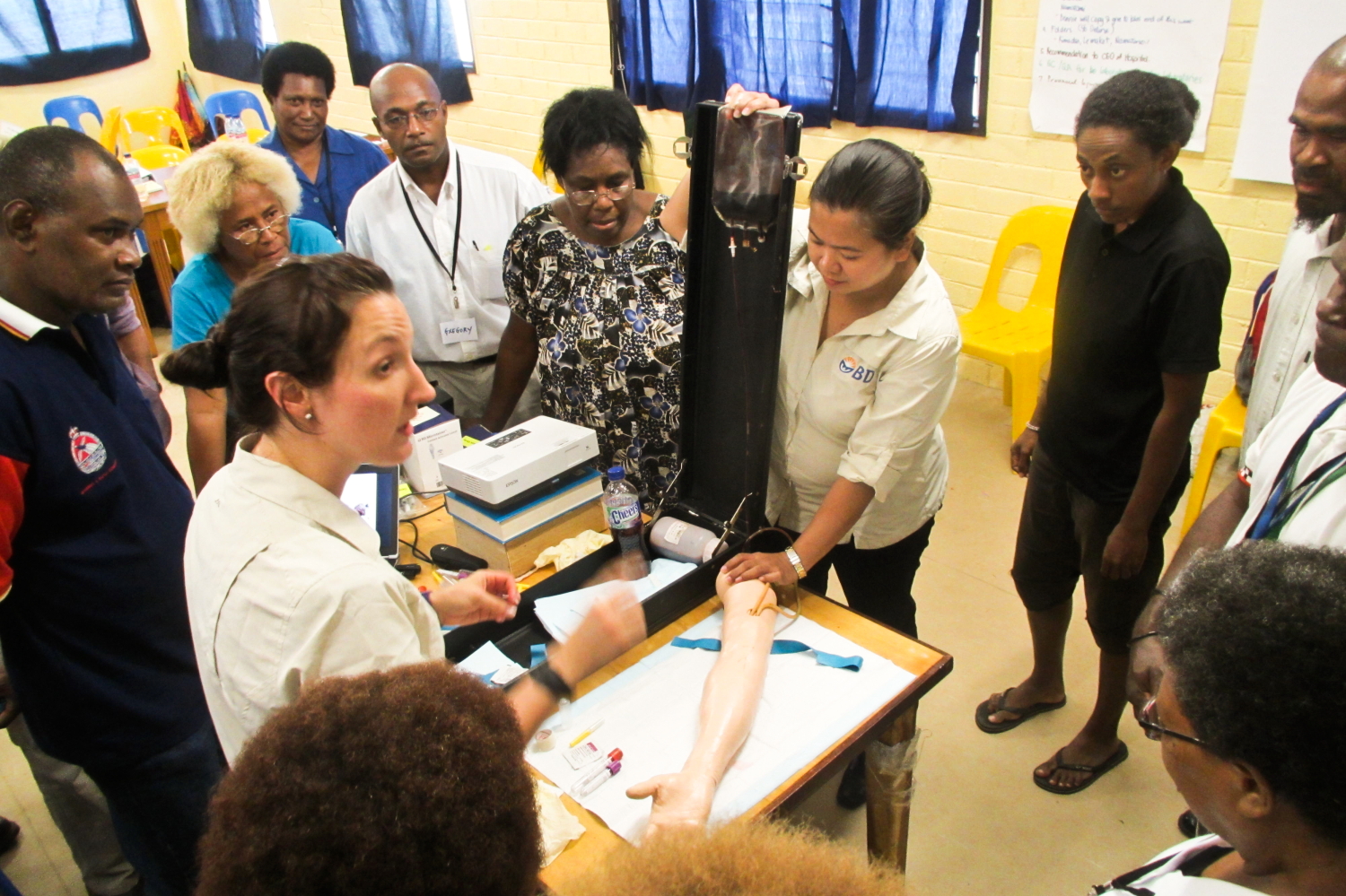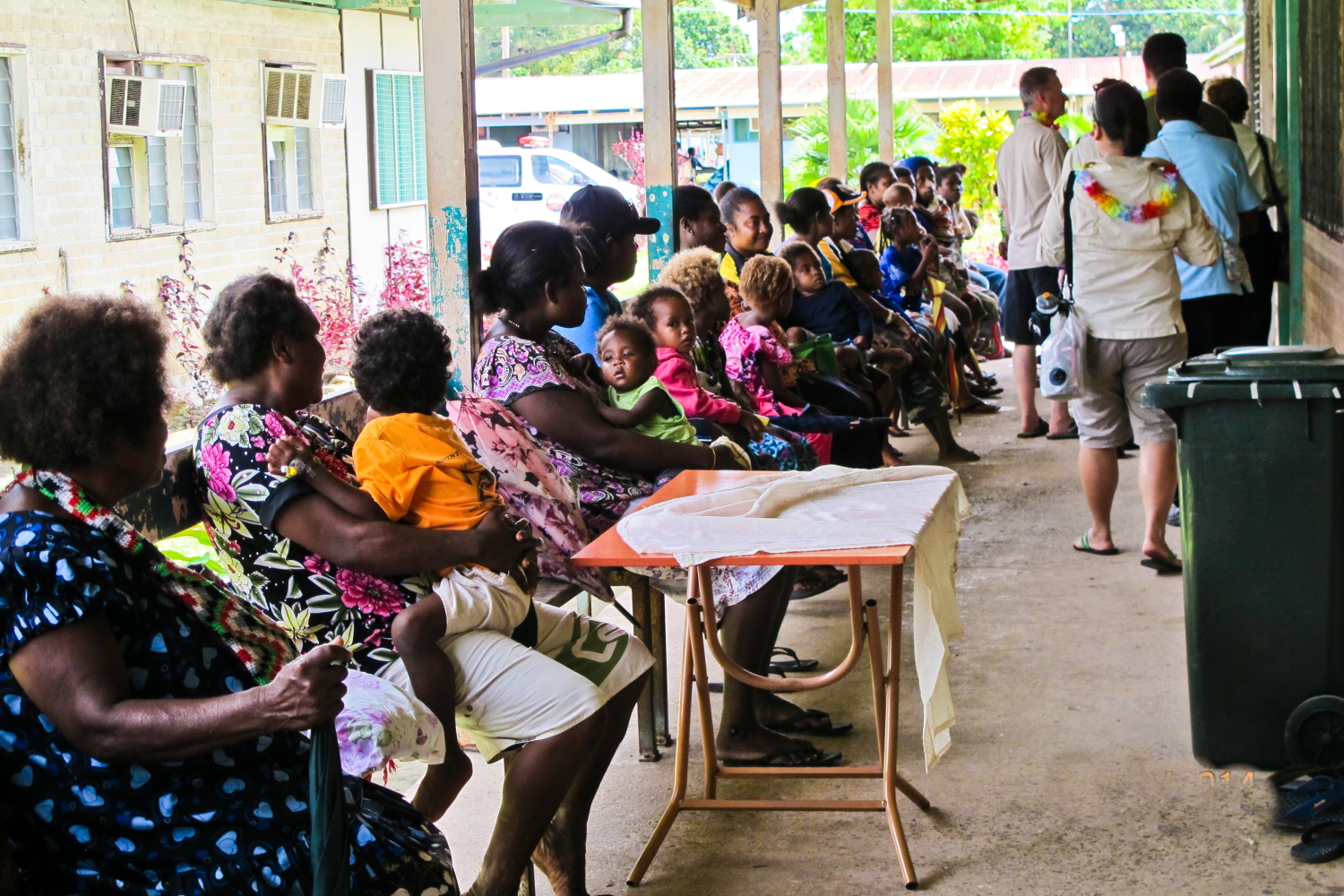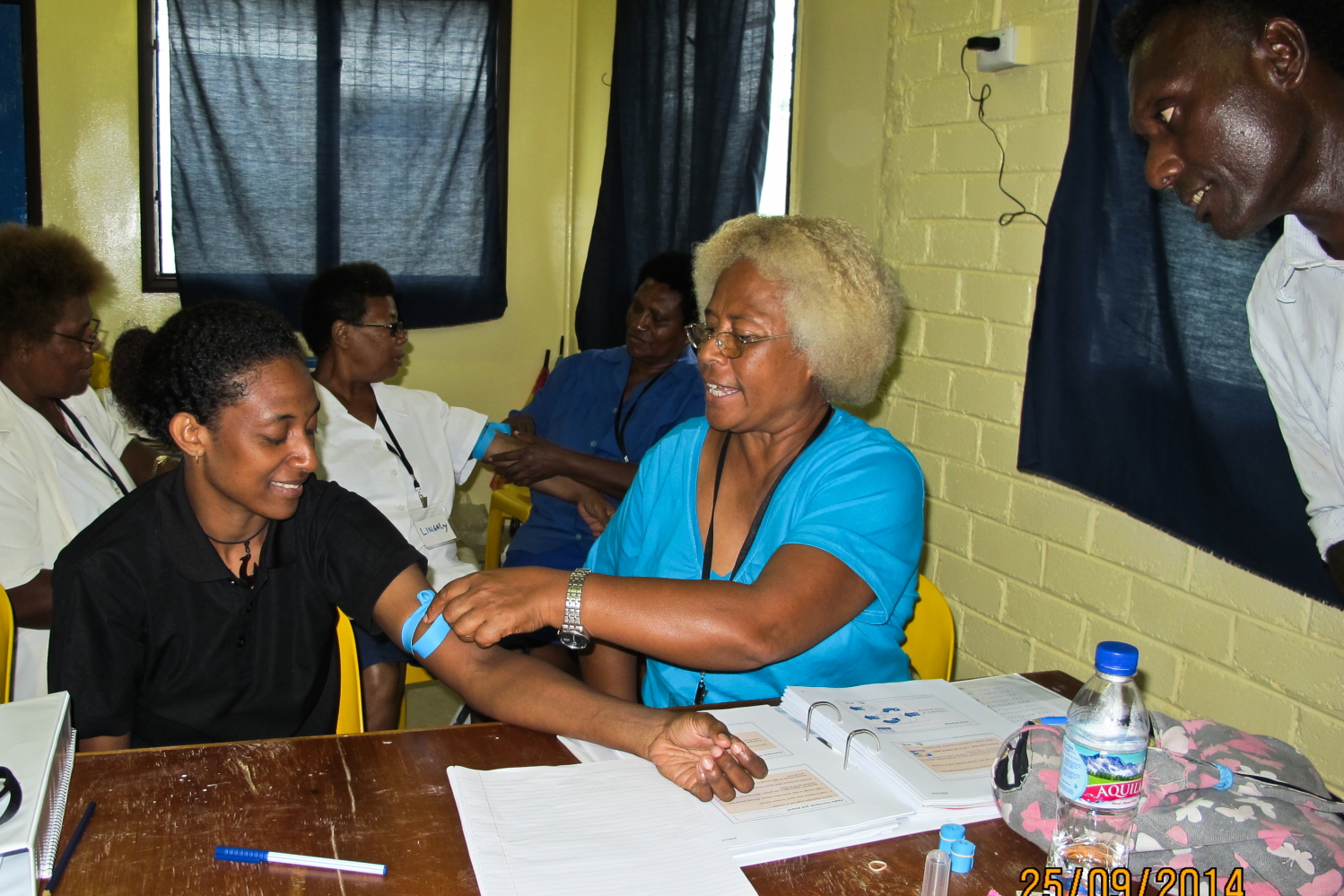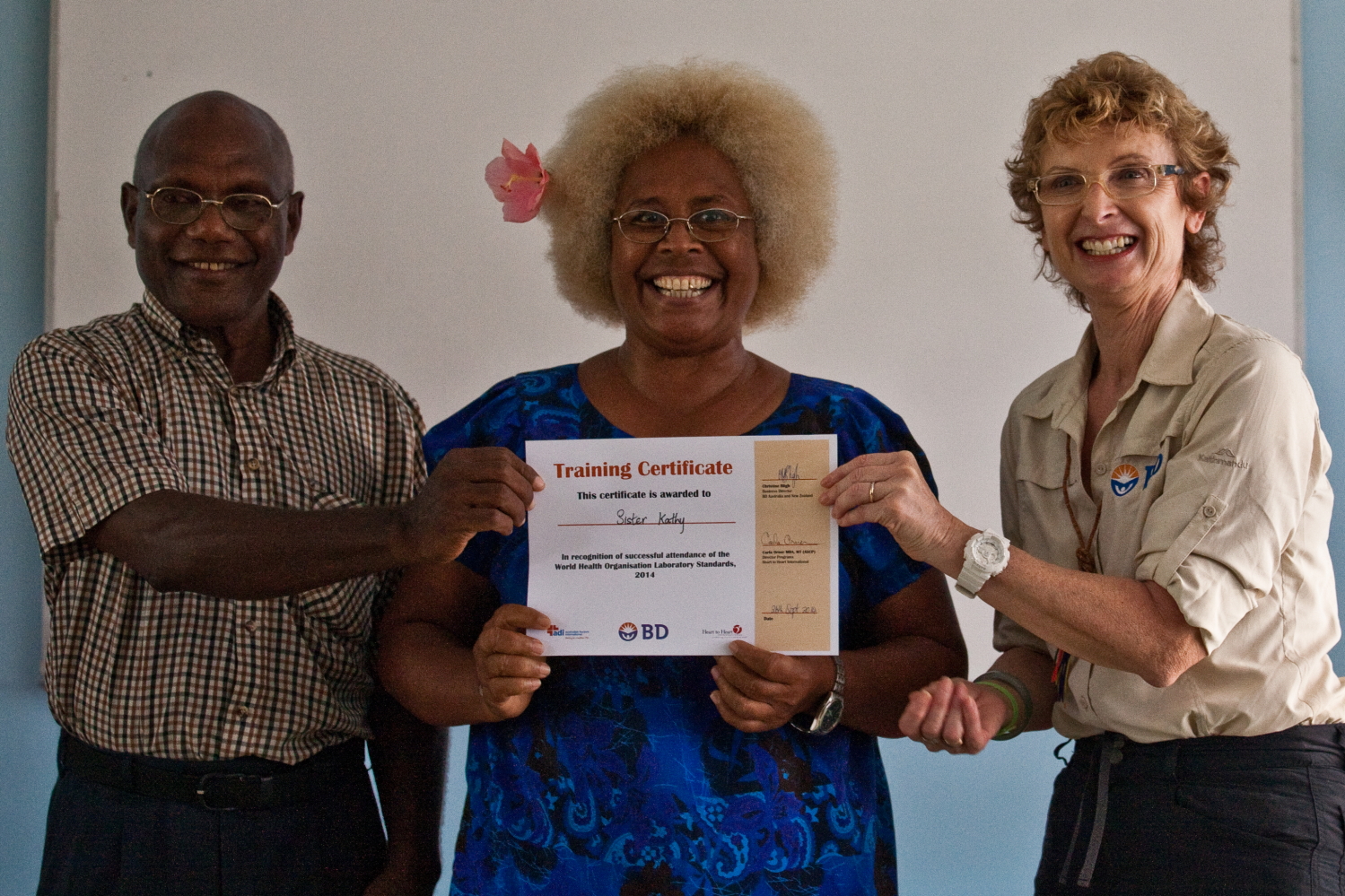The Lemacot Health Center laboratory on the Papua New Guinea island of New Ireland had closed several years ago due to a lack of funding. Now it’s opening again, health workers are being trained, and residents of this remote island in the Pacific Ocean have better access to healthcare.
(Ed. note) For several years, Heart to Heart International has worked in Haiti with corporate partner BD to develop and strengthen laboratory services in both urban and rural communities and to provide healthcare worker training through BD’s Volunteer Service Trip program. Now, drawing on that experience and fostering new partner relationships, we’ve replicated the training program on the other side of the world – Papua New Guinea.
Working with BD and the organization Australian Doctors International, we developed a one week laboratory training program to teach the World Health Organization (WHO) Laboratory Standards to lab managers on New Ireland (map). The lessons include projects the laboratorians can take home and implement within a few weeks or months to increase the accuracy and consistency of laboratory testing. This results in better patient diagnosis and treatment no matter the remote and rustic locations in which these lab managers work.
The Lemacot Health Center serves 16,813 people within a 4 hour walk. Lemacot nurses go into the countryside in order for people to access services no more than 10 minutes from home. The nurses deliver more than 400 babies a year and track vaccinations for all the children in their coverage area. Lemacot treats TB patients, HIV patients, trauma as well as general medicine. Nurses, midwives, community health workers and health officers serve the local population – all without a physician.
Lemacot Head Nurse, Sister Kathy, told us she could only attend the first and last day of our laboratory training. We were pleasantly surprised when she came the next day and said she’d be there all week. She told the class that she had been working with her nursing staff to standardize practice in the health center. As it turns out, the class we had taught on the first day was on the importance of SOP’s – Standardized Operating Procedures. She said it rang true with her.
She told us that she needs to encourage her staff to write and follow standardized procedures, knowing it’s key to consistent good nursing care. It is all about the patient and this is the way to be sure patients receive the best care possible.
We went to Papua New Guinea to improve laboratory science on the island of New Ireland and it looks as though our lessons will spread beyond the confines of the laboratory and into general healthcare. If our efforts result in improved, consistent patient care in multiple areas – it’s more than we could have hoped for.






